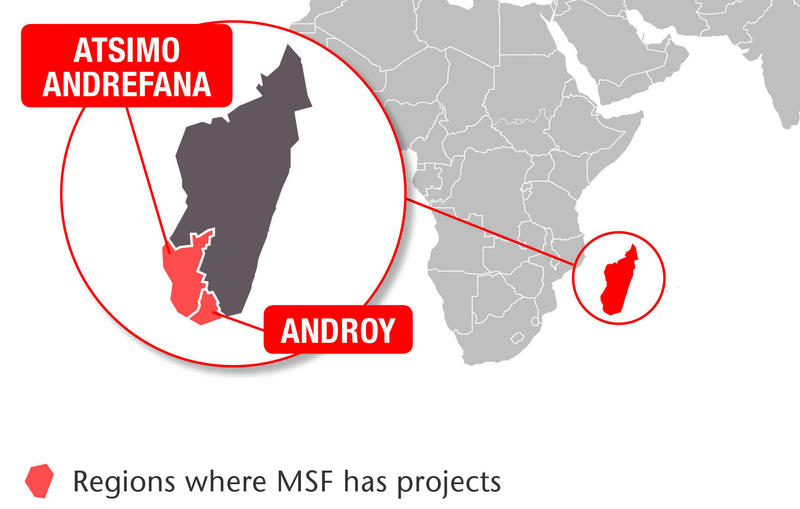Madagascar, home to nearly 25 million people, is the world’s fourth largest island and home to some of the most unique wildlife on earth.

But because of its location in the Indian Ocean – south east of Mozambique – Madagascar is often prone to cyclones and flooding.
Médecins Sans Frontières/Doctors Without Borders (MSF) has been working in Madagascar since 1987, responding to natural disasters and providing healthcare for people who would otherwise be out of reach.
Since being plunged into economic uncertainty in 2009, we have been working in the country to fill in healthcare gaps.
[[Country-Facts]]
MSF’s work in Madagascar: 2015
In 2015, MSF returned to Madagascar to respond to a malnutrition crisis and a malaria outbreak.
Low rainfall in the south of Madagascar meant that the harvest was poor in 2015. The subsequent food shortage was compounded by a lack of infrastructure and access to medical care. When the first MSF teams arrived to assess the gravity of the crisis, we found that people were collecting wild plants and leaves to eat, and selling household items, livestock and even land in order to buy food.
Therapeutic feeding
Most stockpiles of food had already been exhausted. In June, MSF started providing treatment for malnutrition in Ambovombe district, Androy region.
The intensive therapeutic feeding centre admitted a total of 139 children (90 percent of whom were aged under five), and 1,486 were admitted as outpatients (75 percent of whom were aged under five).
Thanks to the unexpected arrival of the rains, however, the situation improved in September and the number of cases of malnutrition was not as high as estimated. ‘Nutrition surveillance caravans’ were launched in order to monitor the nutritional status of the scattered population in several parts of this largely rural region.
[[Article-CTA]]
Malaria response
In May, there was an increase in the incidence of malaria in the south of Madagascar, but the country’s response was limited due to a lack of drugs – artemisinin-based combination therapy (ACT), the most effective treatment – and the remote nature of the area.
Mobile clinics started running in Atsimo-Andrefana region and covered four districts and 13 communes. Between early June and mid-July, 4,190 patients were tested for malaria and over half tested positive. All were treated with ACT. In addition to running the mobile clinics, MSF supported two hospitals, 16 clinics and 18 basic health centres by donating malaria drugs and medical equipment.
Find out more in our 2015 International Activity Report



